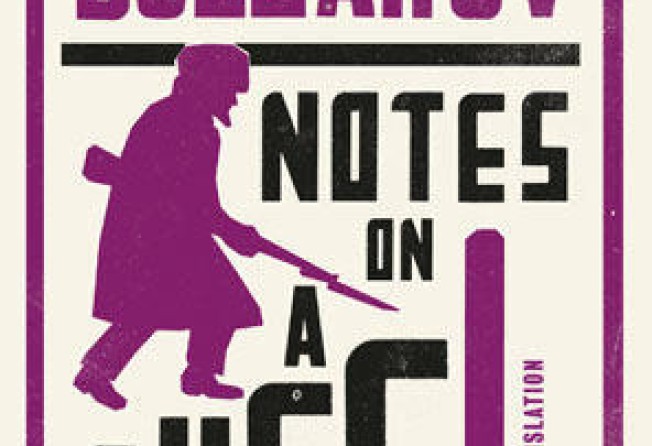
by Mikhail Bulgakov
Alma Classics




It's one of those enduring literary mysteries: why didn't Joseph Stalin have Mikhail Bulgakov bumped off?
True, few of Bulgakov's works saw the light of day in his lifetime, but that could hardly have been a help to the writer, particularly one who so fearlessly - or recklessly - paraded the absurdities of communist rule.
Bulgakov is best known for his longer, more fable-like works The Master and Margarita and The Fatal Eggs (whose title, you will learn from the long, informative afterword, contains a multi-layered pun so untranslatable you wonder how much of its essence can survive in English). These stories in Notes on a Cuff - which have been translated into English for the first time - were written in the early 1920s and, with one or two exceptions, there is little impulse to fabulism or (to use the term loosely) surrealism.
Things were weird enough as they were, and all Bulgakov had to do was draw on his experiences as a doctor and literary administrator. A recurring theme in this volume sees a medic doing his best to escape whichever Russian conflict (there were plenty to choose from at the time) he is about to be dragged into. Stuffing a revolver into your pocket and running sometimes seems to be the wisest course of action, as is making sure there's one remaining bullet, so that if you are captured, you can use it on yourself.
The remarkable thing about Bulgakov is that he manages to maintain an ironic distance in his narratives that doesn't diminish the urgency or veracity of what he has to report. It reads as though he's in a rush to get it all down, as if there is either no time for or no point to the literary conventions.
The Unusual Adventures of a Doctor sends its narrator across the war-torn country. Chapter 5 of the story consists of only two lines of dots across the page; chapter 6 is subtitled Artillery Barrage and Boots, but has no more text; and the first chapter is subtitled No Title - Just a Howl. When the narrator sees, through his binoculars, a chair sitting on its own on top of a hill, he says, referring to the manufacturer: "The Zeiss is hallucinating!"
It is the kind of detail, you feel, that could only have come from lived experience.
This is a good place to start on Bulgakov if you haven't read his work before. All his manic energy is here and so, largely, is his talent. There is also the matter of his considerable intellectual honesty as a writer: he is, so to speak, an anti-propagandist. There's one theory it was this bravery that impressed and amused Stalin, and kept the writer out of the gulag or the prison cell.
Bulgakov died in 1940, aged 48, of an inherited kidney disease.
Guardian News & Media